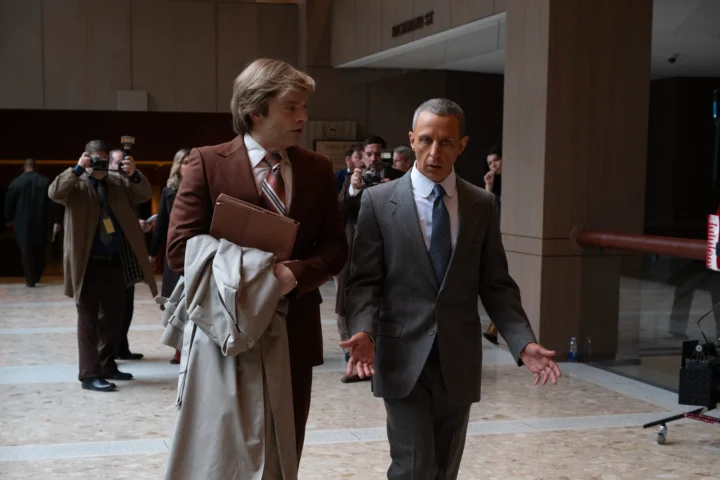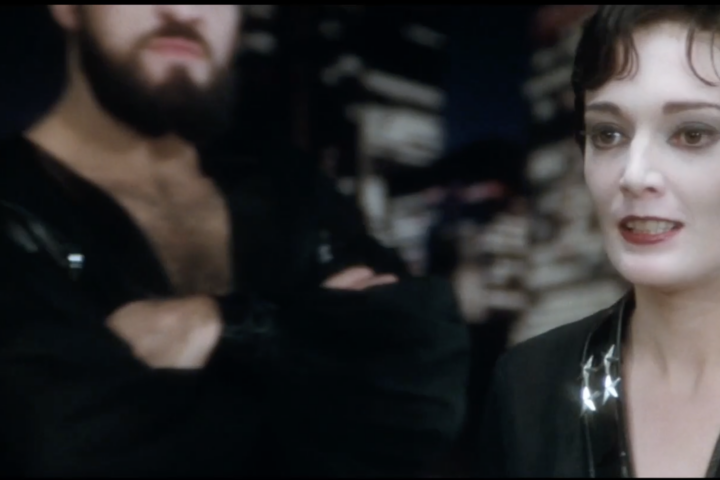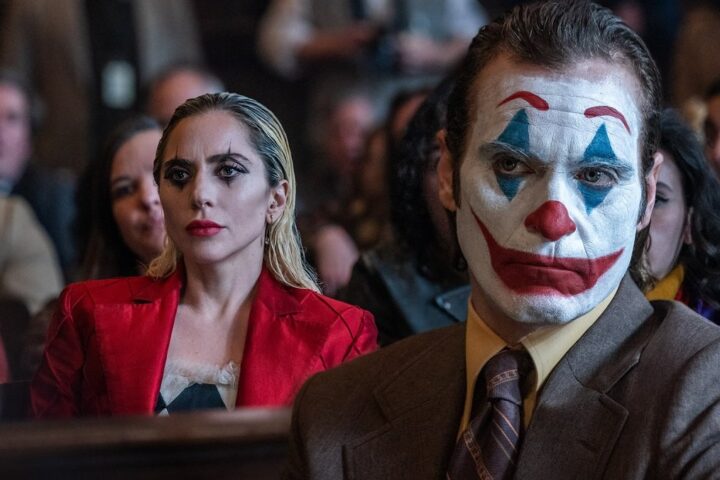Art and culture take their time essaying perspectives on the past—if the 70s offered a revival of 50s nostalgia (perhaps because the social unrest of the 60s left some longing for the “innocence” of an earlier era), the 80s were a conservative rebuff to the 60s’ counterculture. And so it goes.
Yet sometimes artists’ perspectives on the past arrive more quickly. Playing at the Raven Theatre through May 7, When All Of This Is Over, a Glass Apple Theatre production of an original work written by Joel Z. Cornfield and Mark Smith contemplating a recent chapter of American history—March 2020 and its COVID-19 fears, protocols and their impact on each of us—traces a handful of days in the lives of a few young Chicagoans struggling to connect during the height of lockdown.
In an 80-minute one act directed by Brian McKnight with no set changes and minimal design—a pair of whitewashed apartment sets adjoined by an invisible wall—we meet young law firm associate Gemma (Katie O’Neill) and former Marine officer Miles (Evin McQuisiton), neighbors and acquaintances whose socially distanced meet cute on their respective terraces sparks an immediate attraction. While Miles is a Detroit Tigers fan and Katie a Cubs devotee, they forge an instant connection over grilled hot dogs and fresh air, a respite from stir crazy housebound dynamics.
Showing up on Gemma’s doorstep is her younger, zest-for-life sister Gloria (Madeline Logan), affectionately nicknamed Go Go, recovering from COVID and fleeing sequestration with their parents, including an overly doting mother (Elizabeth Rude). And into Miles’ apartment comes carefree, down-the-hall buddy Eli (Sam Martin), with his own comic attraction to resident laundry buddy Gemma.
This youthful, appealing quartet works well together and could likely enliven any romantic comedy, and for the play’s first half, their often spirited roundelay suggests a classic The Odd Couple set-up, practical Gemma counseling devil-may-care Go Go while contemplative Miles contends with Eli’s invasive couch surfing.
Yet at the midway point the show takes a serious turn, incorporating a pair of grave plot threads, including an ailing cancer patient down the hall whose frightened wife (Maura Fawley) may face her husband’s mortality, and the COVID-related loss of an aged grandparent, sharply reminding us how tenuous, mysterious and painful a period we lived through, often without comfort or answers.
The final third, an unorthodox, chaste balcony “date” during which Gemma and Miles hash out deeply existential questions (as many of us did while the COVID death toll ticker rose daily) thoroughly examines questions of life, death, the afterlife, God, the meaning of life and living day-to-day without any such answers. I was reminded of the extended, philosophical exchanges in Richard Linklater’s 1995 movie love story Before Sunrise, about two young people who begin courting with a physical spark before realizing that they actually really like each other, and like the way the other thinks.
O’Neill and McQuistion are perfectly paired here, illuminating a mutual need for connection in a moment of uncertainty, one severed from all that made sense. It is a testament to both performances how much we desire to see them cross those balconies and share a moment directly in each other’s company, which was not to be in March 2020.
Throughout, O’Neill is warmly ebullient, in good humor, a terrific onstage listener and, by the final moments, intensely compassionate. At first glance, McQuistion might suggest a sort of tough, Chicago guy visage, a what-you-see-is-what-you-get veneer which the actor slowly and effectively dismantles into something vulnerable after Miles experiences a sudden loss (he also looks terrific in military dress).
Cornfield and Smith’s meditation on both isolation and the human condition is substantive and frequently affecting. And director McKnight well remembers the claustrophobia of urban alienation during apartment living lockdown (enhanced by Raven’s intimate seating), finding ways to move his cast around the limited environs and making effective use of opposing stage left and stage right, serving as balcony perches. It is remarkable how intimate the exchanges between O’Neill and McQuistion ultimately become given that the pair are positioned about twenty feet apart from each other for the show’s duration.
The minimalist approach incorporates three FaceTime and Zoom conversations projected on an upstage backdrop, a clever reminder that even family interactions during the pandemic’s direst moments, including a difficult conversation with Miles’ mother (a terrific Ellen Shaw), were so close—yet so far.
Recommended.
Visit Raven Theatre for tickets to When All Of This Is Over.



